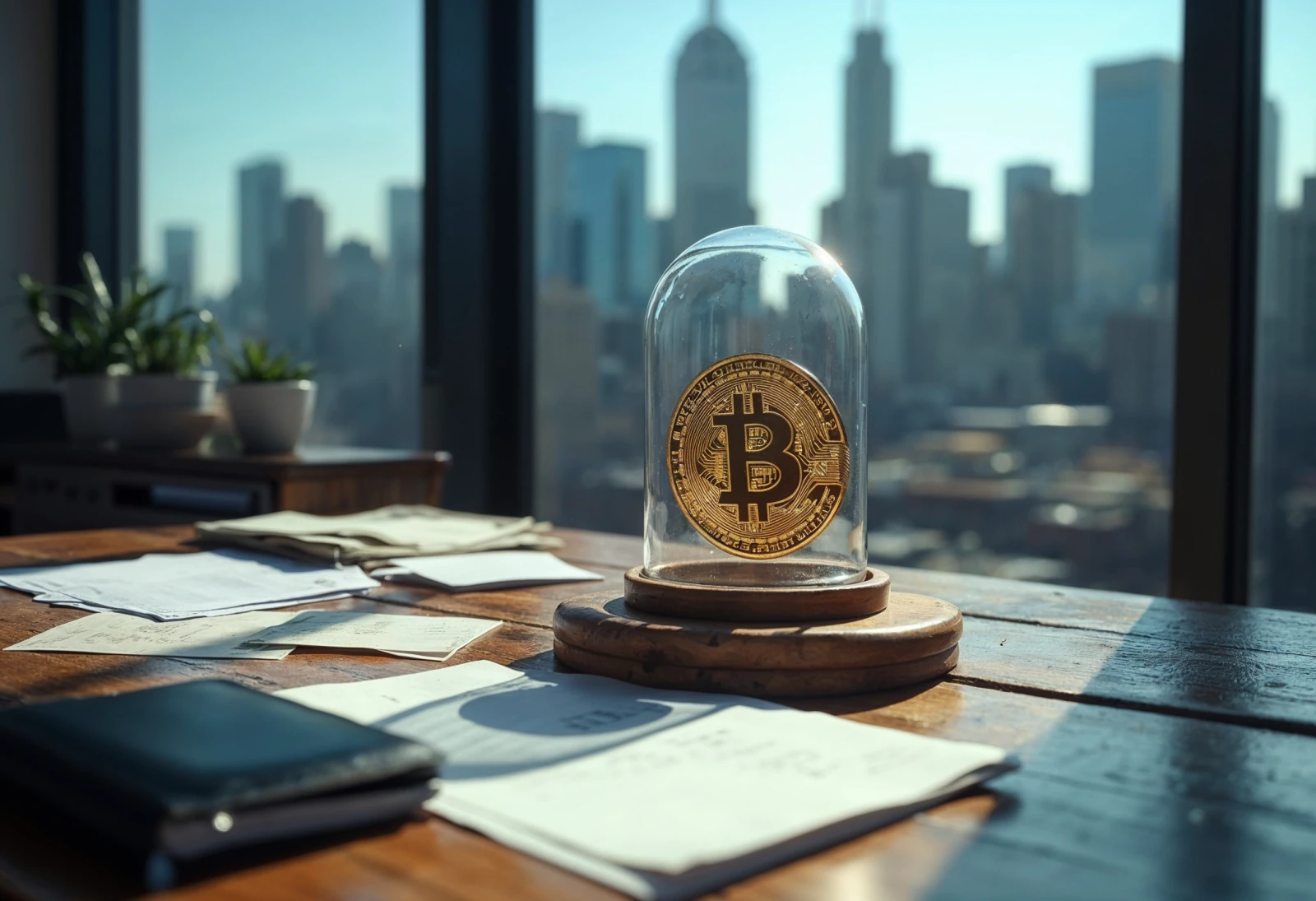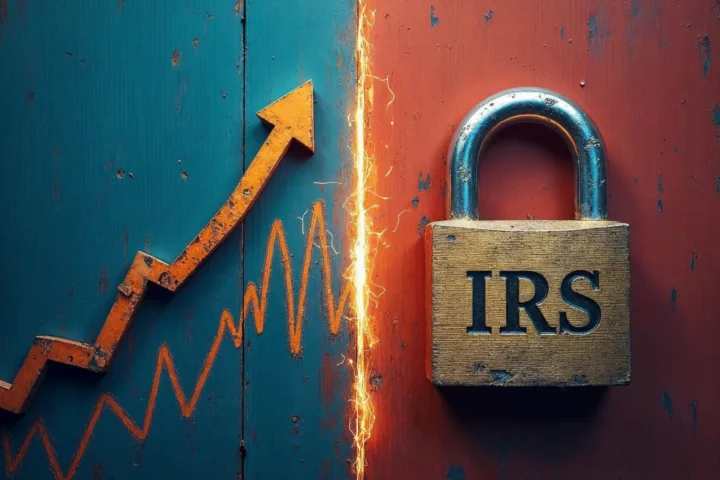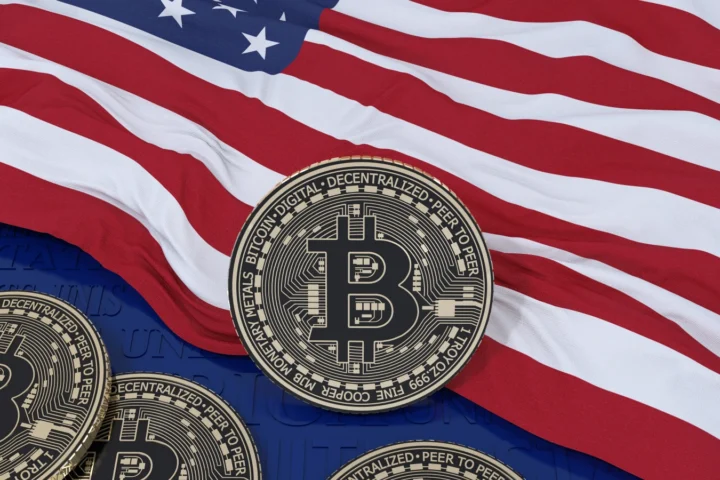In a striking reversal, Jamie Dimon, JPMorgan Chase’s CEO, has expressed regret over his 2017 declaration that Bitcoin is a fraud. This shift came to light in a FOX Business interview, where he acknowledged the misstep in his harsh critique. Despite maintaining skepticism during a subsequent Bloomberg interview, dismissing Bitcoin’s potential as a currency, Dimon’s stance evidences a nuanced evolution.
The financial titan, known for his candid comments on cryptocurrency, has navigated JPMorgan towards embracing blockchain technology, while his personal views on Bitcoin remain cautious yet less dismissive. The industry watches keenly as Dimon, once a vocal critic, now contributes to the discourse with more tempered insights.
Infamous Statement Recap
Back in September 2017, a wave of controversy swept through the cryptocurrency world when Jamie Dimon, the influential CEO of JPMorgan Chase, labeled Bitcoin as “a fraud”. Speaking at a banking conference, he went so far as to compare it to the notorious tulip bulb mania, warning investors against its risks.
These comments from a figurehead of traditional finance elicited strong reactions, with some defending Bitcoin’s potential and others echoing Dimon’s skepticism. This bold pronouncement solidified his position as one of the most high-profile critics in the financial sector, setting the stage for a scrutinized journey of his evolving stance towards digital assets.
Jamie Dimon’s Regret
In a surprising turn of events, Jamie Dimon publicly expressed regret over his harsh characterization of Bitcoin. During an interview with FOX Business, the JPMorgan Chase CEO admitted that his “fraud” comment might have been too strong. Dimon’s admission came with the acknowledgment that the cryptocurrency space is evolving, revealing his openness to reassessing his views.
This marked a pivotal moment in his public stance, indicating a willingness to consider the transformative impact of blockchain technology even if he maintained concerns about Bitcoin’s role as a currency. Dimon’s regret underscores a recognition that the financial landscape is more dynamic than his initial critique allowed for.
FOX Business Interview
In a candid moment during a FOX Business interview, Jamie Dimon, the renowned CEO of JPMorgan Chase, publicly divulged his regret over labeling Bitcoin as a fraud. This televised admission, which grabbed headlines worldwide, showcased a softened perspective from one of Wall Street’s most influential figures.
Dimon’s comments, made in a tone of reflection, signaled a willingness to acknowledge the changing financial landscape and the potential merits of cryptocurrencies, despite his lingering skepticism. The interview marked a turning point in his public stance, highlighting a more nuanced understanding of the digital asset’s evolving role in global finance.
Reiteration of Skepticism
Despite his regret over his harsh words, Jamie Dimon maintained his critical stance on Bitcoin during a Bloomberg interview. He doubled down on his belief that the leading cryptocurrency has no future as a mainstream currency, comparing it to a speculative asset rather than a stable financial tool.
Dimon underscored his concerns about Bitcoin’s volatility and lack of inherent value, reflecting a continued skepticism that contrasts with his softened regret. This reiteration emphasized that while he may acknowledge Bitcoin’s market presence, he remains a cautious observer, not a proponent, of its long-term viability.
Bloomberg Interview Insights
In a profound Bloomberg interview, Jamie Dimon shared deeper insights into his complex views on Bitcoin. He clarified that while he regrets labeling it a fraud due to the harshness of the term, his core skepticism remains. Dimon expressed concerns about Bitcoin’s regulatory environment, stability, and its potential for illicit use, alluding to the cryptocurrency’s inherent risks.
Despite acknowledging the technology’s innovation capacity, he firmly stated his personal disinterest in owning Bitcoin. The interview highlighted his dichotomous stance: on one hand, recognizing its market presence, and on the other, maintaining that it’s not a part of his or JPMorgan’s strategic vision for finance.
JPMorgan’s Shifting Stance
Following Jamie Dimon’s public regret over his earlier Bitcoin condemnation, JPMorgan Chase as an institution has embarked on a journey of adaptation and exploration in the cryptocurrency realm. The bank, once firmly opposed, has softened its approach, acknowledging the growing significance of digital assets. In a series of strategic moves, JPMorgan has ventured into blockchain technology, launched its own blockchain-based platform, JPM Coin, and even started offering banking services to select cryptocurrency firms.
This marked change reflects a recognition that the crypto landscape is no longer ignorable. Although Dimon’s personal views continue to lean toward skepticism, JPMorgan’s institutional stance has evolved to incorporate the potential of cryptocurrencies within the broader financial ecosystem.
Historical Changes in Opinion
Tracing Jamie Dimon’s journey on cryptocurrency showcases a remarkable evolution. In 2017, he famously labeled Bitcoin as a ‘fraud’, setting off a wave of debate within financial circles. This hardline stance softened over time, with Dimon later expressing regret for his choice of words in a 2024 FOX Business interview. Notably, this shift didn’t signal an unconditional embrace of cryptocurrencies; rather, it reflected a recognition of the sector’s growing relevance.
Dimon’s views have oscillated alongside JPMorgan’s strategic moves, as the bank initiated blockchain projects and even offered services related to cryptocurrency, indicating a corporate strategy more adaptive than his personal skepticism suggested. This sequence of events underscores Dimon’s willingness to reassess his position in light of the digital asset’s resilience and market development.
Dimon’s Views on Cryptocurrency as a Whole
While Jamie Dimon’s relationship with Bitcoin has seen waves of change, his perspective on cryptocurrencies in general retains a skeptical tone. He distinguishes between the technology, like blockchain, which he acknowledges as promising, and the cryptocurrencies themselves. In various interviews, Dimon underscores the need for regulation, expressing concerns over their use in illicit activities and their volatile nature.
He maintains that cryptocurrencies, despite their market frenzy, haven’t yet proven their long-term viability as reliable stores of value or mainstream currencies. Dimon’s view reflects a cautious institutional stance, advocating for a wait-and-see approach while JPMorgan explores blockchain’s applications without fully endorsing specific digital coins.
The Impact on Bitcoin and the Crypto Market
Dimon’s softened stance resonated through the crypto community, potentially influencing investor sentiment. While his initial remarks had cast a shadow over Bitcoin’s legitimacy, the admission of regret could be seen as a validation, albeit indirect, of the cryptocurrency’s resilience and growth.
The crypto market, sensitive to influential figures’ opinions, might have experienced a boost in confidence. Investors and market analysts alike took note, interpreting this change as a signal that even the most traditional financial leaders have to re-evaluate the role of digital assets in the modern economy. However, it’s crucial to remember that Bitcoin’s value and the broader market’s trajectory are shaped by a multitude of factors, with Dimon’s comments being just one among many.
Personal Investment: Does Jamie Dimon Own Bitcoin?
Despite his fluctuating views on Bitcoin, Jamie Dimon has maintained a personal policy of not owning the cryptocurrency. In multiple interviews, he has neither confirmed owning Bitcoin nor expressed an intention to invest in it personally. Dimon’s stance separates his professional responsibilities from personal investments, reflecting his cautious approach to the digital asset.
His focus remains on guiding JPMorgan Chase’s strategy, which, while exploring blockchain technology, has not publicly endorsed investing in Bitcoin for its clients or its CEO’s portfolio. Dimon’s personal disassociation from Bitcoin ownership adds intrigue to the broader debate on the integration of cryptocurrencies within traditional finance.
Jamie Dimon’s Bitcoin Prediction
While Jamie Dimon’s views on Bitcoin have softened, he remains cautious in making definitive predictions about its future. Despite retracting his “fraud” comment, Dimon hasn’t embraced Bitcoin as a long-term investment, often emphasizing the risks associated with cryptocurrencies. He typically refrains from giving specific price forecasts, instead directing focus towards regulatory scrutiny and market volatility.
In various interviews, Dimon has underscored the importance of blockchain technology, distancing his positive remarks from Bitcoin itself. This ambiguity leaves the financial community speculating on his true assessment of Bitcoin’s long-term viability, with many interpreting his stance as one of guarded neutrality rather than outright endorsement or bearishness.
Blockchain Recognition
While Jamie Dimon’s views on Bitcoin have oscillated, his appreciation for the underlying blockchain technology has been consistent. Recognizing the transformative potential of blockchain, JPMorgan Chase has actively explored and implemented its uses. The bank’s introduction of JPM Coin, a digital token for internal settlements, signifies a strategic pivot towards leveraging blockchain’s efficiency in financial transactions.
Dimon has publicly acknowledged the technology’s value, separating it from his critiques of cryptocurrencies. This distinction underscores his belief that blockchain could revolutionize finance, even as he maintains a cautious stance on decentralized currencies. JPMorgan’s foray into blockchain solutions demonstrates Dimon’s practical approach to innovation within a traditionally conservative industry.
Separating Blockchain from Bitcoin
While Jamie Dimon’s views on Bitcoin oscillated from derogatory to regretful, he has consistently expressed admiration for the underlying blockchain technology. Dimon differentiates between Bitcoin, which he critiques for its speculative nature, and blockchain, which he views as a transformative innovation with potential across multiple industries. In numerous interviews, he has underscored blockchain’s efficiency and security in transactions, hinting at JPMorgan’s own forays into blockchain-based solutions like JPM Coin.
This distinction showcases Dimon’s nuanced perspective, recognizing the disruptive power of blockchain unrelated to the cryptocurrency it birthed. By advocating for blockchain adoption while maintaining a skeptical stance on Bitcoin, Dimon embodies the dichotomy that many traditional financiers face in the digital assets landscape.
Future of JPMorgan and Cryptocurrency
As Jamie Dimon’s views on cryptocurrency have evolved, JPMorgan Chase has cautiously embraced the digital asset landscape. The bank now offers services to cryptocurrency firms and has launched JPM Coin, a blockchain-based digital token for institutional clients, signifying a strategic shift. While Dimon’s personal skepticism persists, the institution recognizes the potential of blockchain technology and the inevitable shift towards digital currencies.
This indicates that JPMorgan’s future will likely involve a more proactive strategy in the crypto sector, adapting to changing customer demands and regulatory landscapes. The bank’s softened stance, albeit with Dimon’s reservations, positions it to potentially lead in the integration of traditional finance and cryptocurrencies, fostering innovation while managing risks.
Conclusion: A Changed Perspective or Temporary Shift?
As Jamie Dimon’s journey from labeling Bitcoin a fraud to expressing regret reflects, his views on cryptocurrencies have undeniably matured alongside the industry. This evolution hints at a deeper recognition of the transformative power of blockchain technology, even if his personal endorsement of Bitcoin remains tepid. The dichotomy in his statements—criticism followed by regret and continued skepticism—signals not a definitive change but a pragmatic adaptation.
JPMorgan’s incremental embrace of digital assets underscores a corporate strategy that balances caution with innovation. Whether Dimon’s shift is permanent or tactical, it underscores the need for traditional finance to engage constructively with the crypto sphere. His nuanced stance now serves as a beacon for a broader conversation on the future of finance, where even the most skeptical are compelled to reassess their positions.










